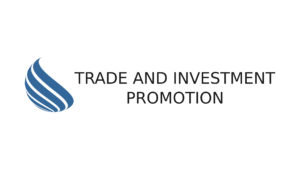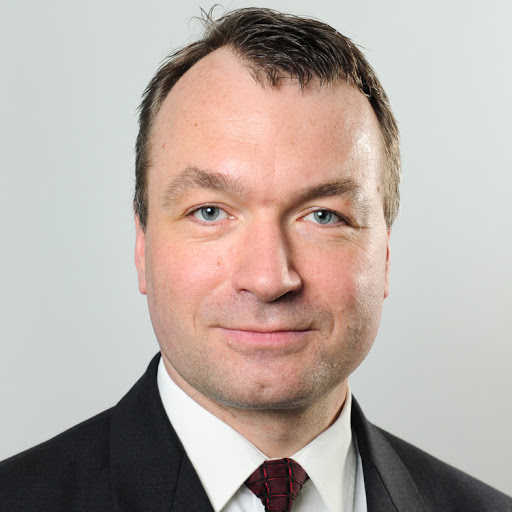Our editor, Ana Grujovic, spoke with Achim Hartig, the Managing Director of Germany Trade and Invest GTAI, and the Chair of OECD IPA Network, who explains how IPAs can be a powerful tool for sustainable economic development.
Q: Germany Trade & Invest is the economic development agency of the Federal Republic of Germany, established in 2009 as part of a merger between “Invest in Germany GmbH” and the “German Office for Foreign Trade” (BfAI). What type of services does GTAI offer today?
Germany Trade & Invest (GTAI) works in two major areas. We provide information and market exploration services for companies exporting from Germany to other countries, and we identify, attract and consult with foreign companies that want to enter the German market. We offer sound industry expertise in all the most important sectors in the German market. Investors thus have a partner who profoundly understands the German market, who can focus on the most urgent challenges presented by their expansion and who is able to facilitate their smooth market entry. One of our unique areas of expertise is in-depth understanding of the European and German systems of incentives for greenfield investments. Multinational companies as well as SMEs have benefited from our tailor-made
information portfolios regarding financial support for individual investments.
We also market Germany in general as a business location and provide special services to support the development of German regions that are undergoing particularly high levels of economic transformation. I am responsible “Invest” half of GTAI. My colleagues and I work with more than a thousand companies every year, of which 200 set up shop in Germany. We also cooperate closely with 16 partner IPAs in the regional states that make up the Federal Republic of Germany. All told, 2000 companies successfully enter the German market every year.
Q: Olaf Scholz has been sworn in as Germany’s new chancellor, formally taking power after Angela Merkel’s historic 16 years as leader. What will it mean for the economic priorities of Germany?
Together with the Social Democrat Olaf Scholz as new chancellor, Christian Lindner of the business- friendly Free Democrats has assumed responsibility for the Finance Ministry, and Robert Habeck of the Greens has become Germany new Minister for Economic Affairs and Climate Action. The new name given to the latter ministry signals the enhanced importance the government assigns to protecting the climate and making German industry more sustainable and resilient. This not only means that Germany, a traditionally leader in clean energy and abolishing nuclear power, will focus more on renewable energies, but it also means that the circular economy will become a central element of German economic policy, addressing issues of sustainability, resilience and availability of resources.
Structures and managed services for infrastructures, both digital and physical, have gained importance in the German market. They significantly contribute to the resilience of the German economy, strengthening autonomy and national and European value and supply chains. As the German government’s national IPA, Germany Trade & Invest is constantly trying to identify and attract companies from foreign countries.
Q: Germany ranks among the top ten in the world as a recipient of foreign direct investment, according to UNCTAD. Which economic sectors attract the highest FDI?
Information and communication technology, software, and business and financial services are the leading sectors and attract the largest chunks of new greenfield foreign direct investment projects. Together with consumer goods, industrial machinery and equipment, chemicals, plastics and paper, they account for more than 60% of all foreign direct greenfield investments. 25% came from the sectors electronics, semiconductors, transportation, storage and logistics, healthcare, pharma, biotechnology, automotive industries, energy, minerals and metals. The approximately 15% of foreign direct investments that remain are spread among other sectors.
It would be fair to say that the strongest industries of Germany also attract the most foreign direct investment.
Q: The German automotive industry is playing a pivotal role in the global transition to electric mobility solutions. What is the future of the automotive market in Germany?
The German automotive industry has understood that it has to change, and the traditional strengths of the industry in the combustion engine era are being transformed into excellence in the production of electric vehicles. Companies like Tesla from the United States, Vinfast from Vietnam and others have already entered the German market for automotive production and are already enriching it. The ideas and technologies of these new companies are inspiring for local companies and will lead to a better quality-price ratio and availability of electric vehicles in the near future.
Q: Many IPAs have integrated climate goals and green investment promotion into their strategies. In which ways is GTAI promoting green investment opportunities?
In 2020, Germany Trade & Invest introduced specific strategic industry areas for investment promotion that encompass green investment opportunities. Right from the state of the COVID pandemic crisis, it became clear that the economy in Germany would be different than it had been 2019. Companies would take the opportunity to transform their businesses, making them more environmentally friendly and promoting sustainability in their sourcing, production, products and services. We also introduced a scoring model to benchmark the investment projects with reference to the sustainable development goals of the United Nations and in their contributions to the resilience of the German economy. Our scoring model has attracted a lot of interest nationally and internationally among investment promotion agencies. And we are constantly refining it to reflect the economic imperatives of the new German government.
Q: Maintaining close relationships with a number of partners is one of IPA’s key success factors. Who are the main partners of GTAI’s network at home and abroad?
German foreign economic policy is based on three pillars. Germany Trade and Invest is Germany’s TPA/IPA. Our closest partners are the German chambers of commerce and the German embassies abroad. It has proven to be helpful to join forces with national and international industry trade fair and start-up associations, research institutions, venture capital companies, financial services institutions and a broad ecosystem of other companies in the private sector.
Q: You were recently named the Chair of the OECD IPA Network. How do you perceive the future of IPAs’ activities?
Investment promotion agencies will become increasingly important to the strength of national economies. In many countries, the scope of the work of investment promotion agencies has already changed because of the COVID pandemic, geopolitical and geo-economic shifts and, more recently, the Russian aggression against Ukraine. The main objective of IPAs has often been to create as many jobs nationally as possible. Meanwhile, though, governments are assigning IPAs other responsibilities, for instance safeguarding national value chains through FDI attraction, attracting human capital and enhancing cooperation between IPAs to develop supranational economic regions for investors.
Cooperation and the exchange of ideas and best practices takes place, among other places, in the IPA network under the auspices of the OECD. It will become even more important in the future not just to get companies to enter national markets, but also to see to it that their business models support sustainability and resilience in the development of industries and local economies. I would suggest that investment promotion agencies evaluate further products and services so that they reflect the situation of mission critical industries in their national economies. They should also introduce measures to ensure that their activities to attract investments support sustainability and resilience. For governments, IPAs can be a powerful tool for economic development. Establishing bonds between countries through foreign direct investments encourages not only economic but also political stability. This is what we particularly need in these troubled times.





